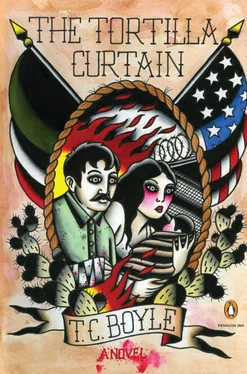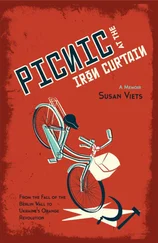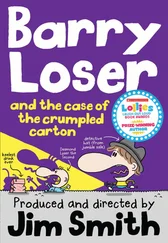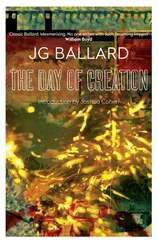T. Boyle - The Tortilla Curtain
Здесь есть возможность читать онлайн «T. Boyle - The Tortilla Curtain» весь текст электронной книги совершенно бесплатно (целиком полную версию без сокращений). В некоторых случаях можно слушать аудио, скачать через торрент в формате fb2 и присутствует краткое содержание. Год выпуска: 2011, Издательство: Penguin Books, Жанр: Современная проза, на английском языке. Описание произведения, (предисловие) а так же отзывы посетителей доступны на портале библиотеки ЛибКат.
- Название:The Tortilla Curtain
- Автор:
- Издательство:Penguin Books
- Жанр:
- Год:2011
- ISBN:нет данных
- Рейтинг книги:4 / 5. Голосов: 1
-
Избранное:Добавить в избранное
- Отзывы:
-
Ваша оценка:
- 80
- 1
- 2
- 3
- 4
- 5
The Tortilla Curtain: краткое содержание, описание и аннотация
Предлагаем к чтению аннотацию, описание, краткое содержание или предисловие (зависит от того, что написал сам автор книги «The Tortilla Curtain»). Если вы не нашли необходимую информацию о книге — напишите в комментариях, мы постараемся отыскать её.
The Tortilla Curtain — читать онлайн бесплатно полную книгу (весь текст) целиком
Ниже представлен текст книги, разбитый по страницам. Система сохранения места последней прочитанной страницы, позволяет с удобством читать онлайн бесплатно книгу «The Tortilla Curtain», без необходимости каждый раз заново искать на чём Вы остановились. Поставьте закладку, и сможете в любой момент перейти на страницу, на которой закончили чтение.
Интервал:
Закладка:
He sat there for half an hour, awash in self-pity, as big a fool as any man alive, and then he knew what he had to do and he picked himself up, took the lump of plastic, the bent and blackened remnant of a grill from their old cookfire and the sixteen dollars he had in his pockets and climbed up the hill to the Chinese market, where they wouldn't be so sure to recognize him, and went in to buy cheese, milk, eggs, _tortillas__ and half a dozen disposable diapers. There were only two people in the store, a _gringo__ customer who ignored him, and the Chinaman behind the counter, who took his money in silence.
Cándido presented the groceries to América as if they were rare treasure and fixed her a meal in the aluminum dog dish on the grill that was the only thing left of their ill-starred camp in the canyon. It was late when they'd eaten and the air was damp and cold and Cándido was thinking of the cement blocks he'd seen out back of the Chinese market and how he could remove a pallet and make a wall of the blocks, with the fire on the inside to warm the place, when America took the baby from her breast and in the shadowy shifting light of the lantern fixed him with a look. “Well,” she said, “and what now?”
He shrugged. “I'll find work, I guess.”
Her eyes had the look of pincers, that grasping and seizing look she got when she wanted something and had made up her mind to get it. “I want you to buy me a bus ticket with that money,” she said. “I want to go home and I don't care whether you're coming with me or not. I've had it. I'm finished. If you think I'm going to raise my daughter like a wild animal with no clothes, no family, no proper baptism even, you're crazy. It's you they want, not me. You're the one.”
She was right, of course she was right, and he could already feel the loss of her like something cut right out of his own body, his heart or his brain, a loss no man could survive. He wouldn't let her go. Not if he had to kill her and the baby too and then cut his own worthless throat in the bargain. “There is no money,” he said.
He watched her lips form around a scowl. “That's a lie.”
Wordlessly, with a brutality that made him hate himself, he dug the nugget of plastic out of his pocket and dropped it on the scrap of wool carpet. Neither of them spoke. They lay there a long moment, stretched out beneath the green sheet of the roof, staring at the little bolus of plastic and the coins embedded in it. “There's your bus fare,” he said finally.
She had her baby, and every living cell and hair of it was a miracle, the thing she'd done herself though her father said she was stupid and her mother called her clumsy and lazy and unreliable-her creation, beautiful and undeniable. But who could she show her off to? Who was going to admire her Socorro, the North American beauty, born with nothing in the land of plenty? For the first few days she was too full of joy and too tired to worry about it. She was in a shack, another shack, hidden away like a rabbit in a burrow, and she was alive because of Cándido's bravery and his quick thinking, and she had her daughter at her breast and Cándido had delivered her. That was all for then. That was all she needed to know. But as he went out to scavenge things-a blanket he found on a clothesline one night, a beach towel to wrap the baby in-or left her to crouch in the bushes across from the post office and wait for Señor Willis's car that never came, she began to brood, and the more she brooded the more afraid she became.
This wasn't just bad luck, this was an ongoing catastrophe, and how long could they survive that? Cándido was the best man in the world, loving and kind and he'd never known the meaning of the word “lazy” in his life, but everything he did turned out wrong. There was no life for her here, no little house, no bathroom with its gleaming faucets and bright white commode like the bathroom in the _guatón's__ big astonishing mansion. It was time to give it up, time to go back to Tepoztlán and beg her father to take her back. She had her daughter now and her daughter was a North American, a citizen of Los _Estados Unidos,__ and she could come back when she was grown and claim her birthright. But then, how would anyone know? Didn't they have to record the birth in the village or the church? But what village, what church?
“Cándido, what about the baby?” she said one night as they sat before the hearth he'd constructed of cement blocks, laying sticks on the fire while water boiled in the pot. It was raining, a soft discontinuous patter on the plastic roof, and she was lying snug atop the sacks of grass seed, wrapped in the blanket. Cándido had been gone all day, scouring the roadside for cans and bottles to redeem in the machine outside the Chinese store, and he'd come home with sugar, coffee and rice.
“What about her?” he said.
“We have to register her birth with the priest-she was born here, but who's going to know that?”
He was silent, squatting over his haunches, breaking up sticks to feed the fire. He'd managed to make the place comfortable for her, she had to give him that. The slats between the pallets had been stuffed with rags and newspaper for insulation, and with a fire even on the coldest days she was warm. And he'd got water for them too, spending a whole night digging a trench up the hill and tapping into the development's sprinkler system, cutting the pipe and running joined lengths of it all the way to their little invisible house, and then he'd buried it and hidden his traces so well no one would ever suspect. “What priest?” he said finally.
She shrugged. Socorro lay sleeping at her breast. “I don't know-the village priest.”
“What village?”
“I want to go home. I hate this place. I hate it.”
Cándido was silent a moment, his face like a withered fruit. “We could walk into Canoga Park again, if you think you're up to it,” he said finally. “They must have a priest there. He would know what to do. At least he could baptize her.”
She dreaded the idea after her last experience, but just the mention of the name-Canoga Park-made her see the shops again, the girls on the street, the little restaurant that was like a café back at home. Somebody there would know what to do, somebody would help. “It's awfully far,” she said.
He said nothing. He was staring into the fire, his lips pursed, hands clasped in his lap.
“What did you do with the cord?” she said after a moment.
“Cord? What cord?”
“You know, the baby's cord. The umbilical.”
“I buried it. Along with the rest. What do you think?”
“I wanted that cord. For Chalma. I wanted to make a pilgrimage and hang it in the tree and pray to the Virgin to give Socorro a long and happy life.” And she saw the tree in her mind, the great ancient ahuehuete tree beside the road, with the crowds of pilgrims around it and the vendors and the hundreds upon hundreds of dried birth cords hanging from the branches like confetti. Socorro would never know that tree; she'd never be blessed. América had to catch her breath to keep from sobbing with the hopelessness of it. “I hate it here,” she whispered. “God, how I hate it.”
Cándido didn't answer. He made coffee with sugar and condensed milk and they drank it out of _frijole__ cans, and then he cut up an onion, some _chiles__ and a tomato and cooked the rice, and she wouldn't get up, wouldn't help him, even if he'd tried to force her.
It rained the next day too, all day, and when she went out to relieve herself and bury the baby's diaper, the earth was like glue. For all this time it had been powder and now it was glue. She stood there in the rain, looking out over the misted canyon, the roofs of the houses, the barren scar of Cándido's fire, and the rain smelled good, smelled of release and reprieve-smelled, ever so faintly, of home. She had to get away, even if it meant bundling up Socorro and walking all the way back to the border, and if she starved along the way, then that was God's will.
Читать дальшеИнтервал:
Закладка:
Похожие книги на «The Tortilla Curtain»
Представляем Вашему вниманию похожие книги на «The Tortilla Curtain» списком для выбора. Мы отобрали схожую по названию и смыслу литературу в надежде предоставить читателям больше вариантов отыскать новые, интересные, ещё непрочитанные произведения.
Обсуждение, отзывы о книге «The Tortilla Curtain» и просто собственные мнения читателей. Оставьте ваши комментарии, напишите, что Вы думаете о произведении, его смысле или главных героях. Укажите что конкретно понравилось, а что нет, и почему Вы так считаете.












